Dave Clarke (b. 1968) is, arguably, Britain’s greatest techno DJ. Although, in fact, he has lived in Amsterdam since 2009. He is also a producer of repute. His Red singles of the mid-Nineties are regarded as groundbreaking productions.
He followed these with the albums Archive One in 1996, Devil’s Advocate in 2003, and The Desecration of Desire in 2017. The Red Series and Archive One have recently been reissued.
Clarke was born and raised in Brighton, the offspring of a technology-loving father and a disco-loving mother. He would not characterise his childhood as especially happy. He ran away from home, and was a loner, but found his place in the tough end of the rising electronic dance music scene as the Eighties turned into the Nineties. He DJed relentlessly, anywhere he could.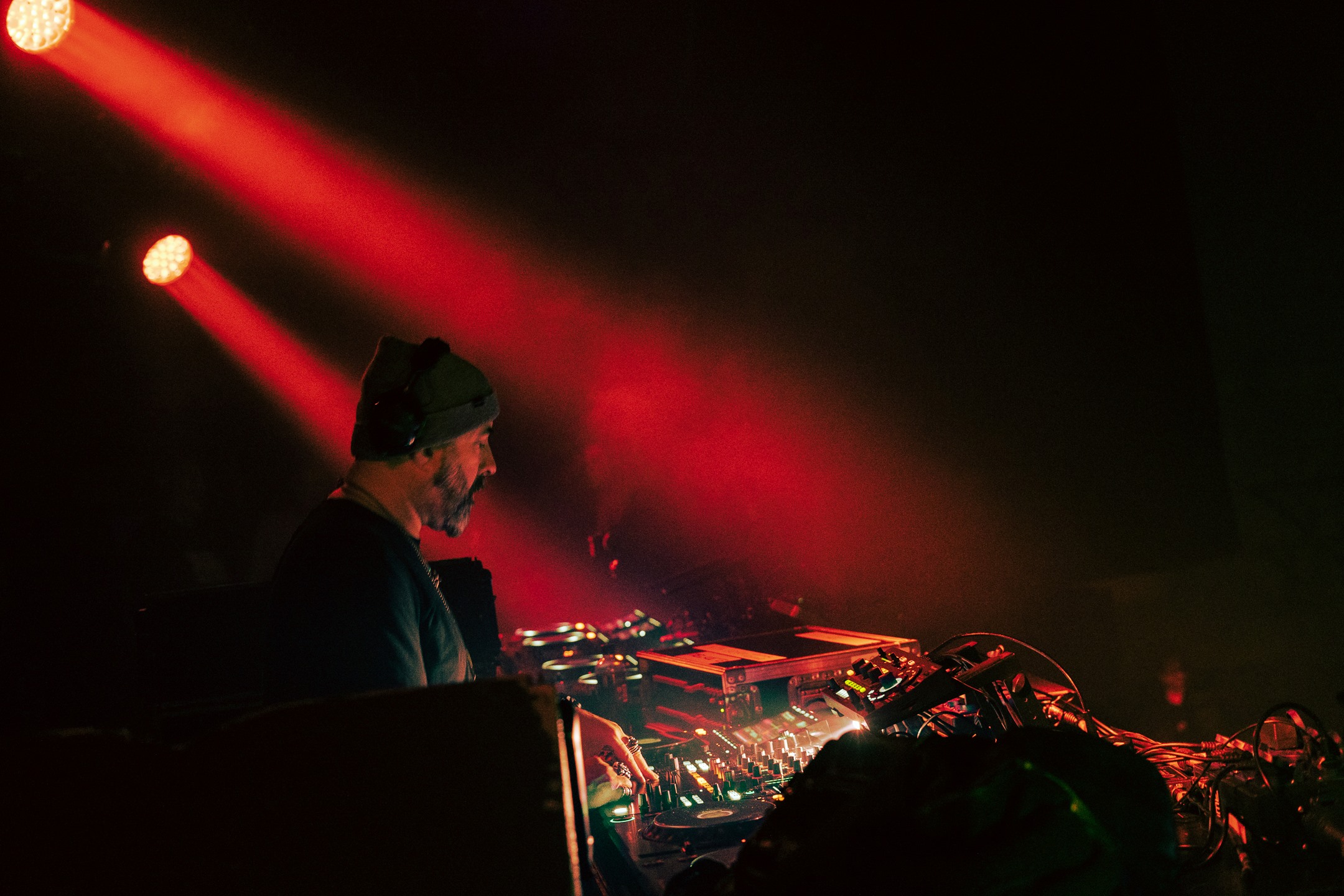 Clarke has remixed everyone from Depeche Mode to Placebo, his tastes, like his dress sense, veering towards darkness and Gothicism, his work and public-facing attitude injected with punk spirit. Clarke is as likely to mention Bauhaus as Detroit. His mix albums, especially his World Service sets, are benchmarks that sold in large quantities. And he has played all over the world, endlessly, at the greatest clubs and festivals. He has sometimes been called The Baron of Techno
Clarke has remixed everyone from Depeche Mode to Placebo, his tastes, like his dress sense, veering towards darkness and Gothicism, his work and public-facing attitude injected with punk spirit. Clarke is as likely to mention Bauhaus as Detroit. His mix albums, especially his World Service sets, are benchmarks that sold in large quantities. And he has played all over the world, endlessly, at the greatest clubs and festivals. He has sometimes been called The Baron of Techno
I have known Dave Clarke for decades and interviewed him many times. We've had various adventures together. This interview, then, rather than the usual 10 Questions for..., or a rigorous biographical investigation, wanders about a bit. He appears on Zoom, bearded and cheerful, in his tidy, white-walled Amsterdam home. Despite his sometimes forbidding image, Clarke likes to joke about. We discuss how much hair we both have left (he has far more than I, alas), and whether we’ll stay living in our current home towns forever. He recently pondered a move to Copenhagen but eventually decided he’s happy where he is. Then we settle, sort of, to the prepared questions…
THOMAS H GREEN: Why have Archive One and the Red Series reappeared now, after all these years?
DAVE CLARKE: We wanted them to come out for the 25th anniversary. But, like many artists, all those years ago, I signed a deal that was not the best. I sued that record company to be free to record for other labels, which happened, but I didn't get my rights back for the first album. The whole thing dragged on but I wasn't emotionally entwined with the pettiness and obfuscation. I just let it be. Then my manager and Skint Records worked together behind the scenes and made it happen.
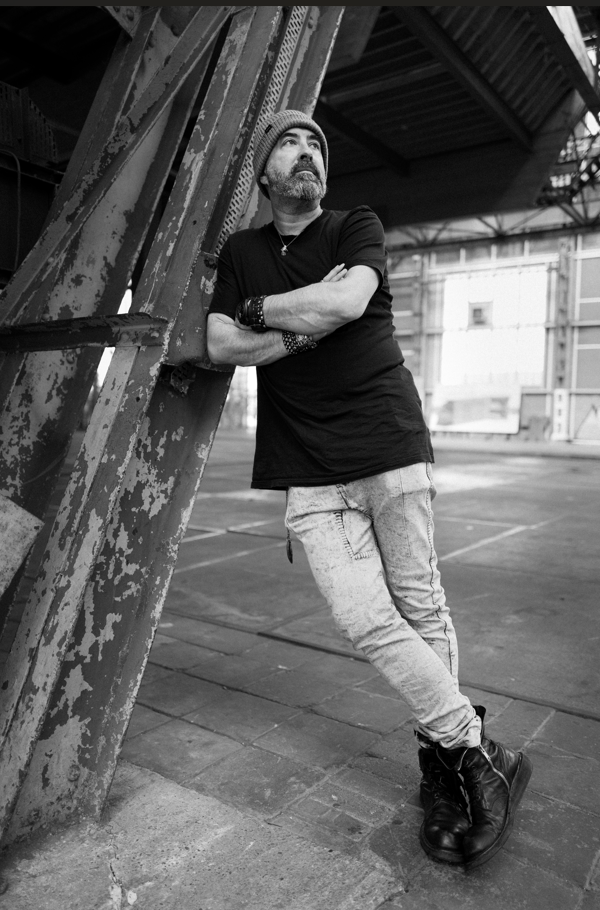 You sound pretty zen about the delays.
You sound pretty zen about the delays.
Weirdly, coming out around the 30th anniversary makes more historical sense. Now is definitely the end of techno, right. Techno is done. It’s turned into “Disco Duck”. Very cool artists are still making good music but as a genre of credibility, it's finished. Obviously, my records weren't released at the beginning of techno but they were pretty fucking close. So this reissue feels like a bookmark. This is how it started… and now my dreams are broken-hearted [Laughs].
How did it feel to listen closely to that music again?
It was actually fun because it sounds so different to 80% of what’s released on a weekly basis. I think it really stands the test of time. I don't often say these things about my music. I started playing it again this year, I went on a mini-tour of different countries. I was like, wow, this really sounds fresh.
The Red Series are hailed as defining early British techno records. What other records would you place alongside them?
That’s a tough one. The first name that comes to mind is LFO, and "We Are Back". Then, of course, early Nightmares On Wax, and, on a different side of techno, Black Dog
The young man who made those records is very different from the gentleman in his 50s, who sits before me. What advice would you give to the younger Dave Clarke?
I teach at the Haarlem Conservatorium, Music and Politics. Sometimes students ask similar questions. Without going, “Je ne regrette rien,” I would change nothing. Because I wouldn’t be the person I am now. I do believe in string theory and parallel universes, but I don’t have access to the memory banks of those other versions of me that did it differently.
So you basically are saying, “Je ne regrette rien”…
I think I would not have been so overtly political with the dance music press. A lot of journalists in those days had their own angles to grind. They would misquote you. Orbital would record all their interviews. I thought that was a bloody good idea. I wish I did that. I was misquoted a lot.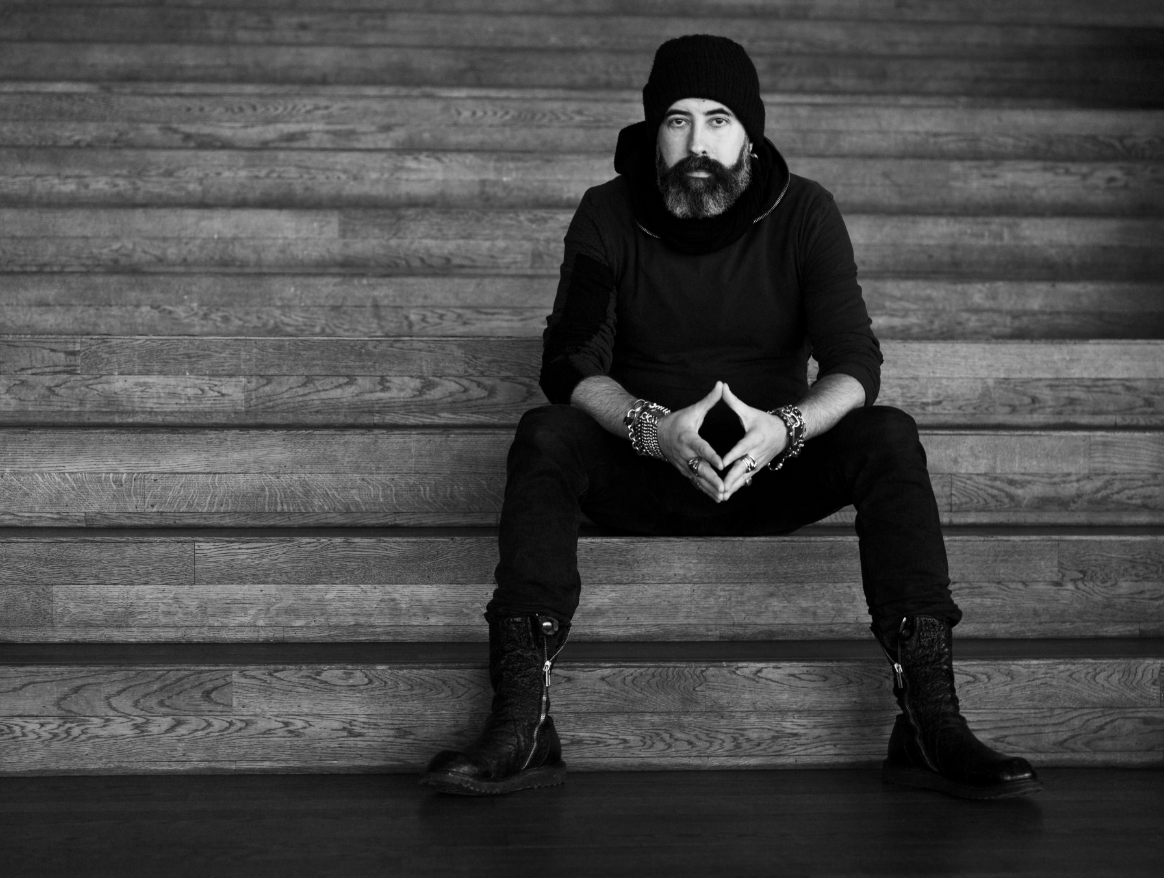 Can you give an example?
Can you give an example?
In the Nineties, there was a possibility that the UK was going to vote on more fully entering into the EU. I thought this was a good idea, because it would save a possible clusterfuck of people then wanting to withdraw, not understanding what they'd signed up for in the first place. I was very, very pro-European. I still am, but I think, had they voted for it, people would have felt more sense of belonging. Of course, I was misquoted about that, and therefore called a Conservative by a gentleman called Paul Clark, who I will never speak to ever again in my life. That really hurt. I speak to people like Gary Numan about it. He used to have things like that. Having an autistic mind, being confronted with a microphone and a journalist, when you're younger, would often lead to trouble. But, musically, I don't have any regrets.
For me, one of the great differences is that, back then, you were Petrolhead Dave. You were a rampant petrolhead. Would you say anything to your younger self about that?
Yeah, I was ridiculous with cars. Stupid, actually.
Don’t beat yourself up too much. I enjoyed your car thing at the time. It was good fun zooming around with you in chunky fast cars. Different times and all that. I mean, do you actively regret it?
I do regret it, yeah, because I was doing things on roads that you shouldn't be doing. And I suppose I almost had a death wish in those days, because I couldn't express what I was unhappy about. A car with an incredible sound system cut me off from the rest of the world. I think I’d say [to my younger self], “Learn to express yourself better and have the right people around you.”
 It sounds like you hate cars now.
It sounds like you hate cars now.
I do hate cars. There's just too many of them. They're kind of ridiculous. Over here [in the Netherlands], it’s a lot easier because public transport generally works and is available for everyone. It's not expensive. You don't have to get a second mortgage to take the equivalent of a train from Bristol to London.
Do you think the accident in 2016 affected your attitude to cars? [After performing at Exit Festival in Serbia, Clarke was being driven to the airport when the vehicle was involved in an accident, at over 70 MPH, which saw it fly, roof up, into a lamppost then land upside-down on the other side of the road]
That was horrendous. I mean I was once held up at gunpoint in Mexico, stuff like that, but this car accident was really mentally challenging. Luckily, I was sleeping low down. So, like, where the lamppost hit the roof, it didn't smack my head, because I was already slouched, half-asleep, in the back. But it changed my attitude.
How so?
It changed my whole perspective on gigging. I didn’t want to be on the road so much. After the accident I couldn't speak clearly and properly for a little while. I lost some of my vocabulary, which reminded me, honestly, of abuse when I was a kid, like being hit around the head, then trying my best to work at school, but I couldn't remember words.
Were there other consequences?
I went to a George Clinton concert a few months afterwards. There was a large amount of bass and, you know me, I love a large amount of bass. But it made me cry. I was in distress. It really hurt. It took me almost two years to break through the constant alert of PTSD, always looking for the exit. I had a few panic attacks as well. The weird thing about my PTSD was that it just disappeared. Getting Corona Virus and double pneumonia a few years later also made it very, very clear to me that things have to change.
There’s been a lot of focus on mental health in the DJ community. You've spoken in the past about the toll of the DJ lifestyle…
I don't do drugs.
I know. That was never your bag. I meant more in terms of the relentless global travelling. Are you in a good place with all that now?
Yes, I think so. A friend sent me an interview I did with John Peel in a house I was renting in Horsham, many years ago. John was telling me, “Well, you should maybe take some time out, spend time in the country, not travel as much.” “I can't John. I'm busy. I love it. It’s great. I’m off to New York tomorrow.” You're in the moment, all that energy and it’s good. But, of course, he was right. But he wasn't right. Because at the time you have to do what you have to do. Other DJs were coming through and if you don't take the opportunity, someone else will. Nowadays, I go [to gig destinations] earlier and leave later. Now I sleep after a gig. I also walk around now with a camera, doing photography. I've got my first photographic exhibition coming up at a Gallery in Amsterdam, mid-September to mid-October. So, an obvious question: when can we expect some new music?
So, an obvious question: when can we expect some new music?
I have new music that's ready to go. It's neoclassical. It features live violin, live cello, pianos, sonic abuse. I'm very, very proud of it. I went to see two labels. The heads of those labels graciously gave me the time of day. After initial excitement, within a week, both these labels, who between them own, like, a quarter of Spotify go, “Well, it's not very Spotify-able, we're not really sure what we can do with it, so we’re going to decline.” And that's where it’s at. I need to find a label that actually understands what we’re trying to do.
Have there been any performances?
We did a live TV broadcast at Charles de Gaulle Airport on the TV station France Deux. And I worked with the violinist Mathilde Marsal on Le Grand Échiquier, which is, like, a 53-year-old programme, The Old Grey Whistle Test of France.
What was that like?
It was fun because, actually. I led into Gustav Holst. At school there was a religious teacher who got us all to sit in a dark room. It wasn't a multimedia thing, just a black’n’white film of planets on film, all the chalk dust floating everywhere. And then a piece of vinyl with Gustav Holst. I was, like, bloody hell this is techno – without even knowing what techno was. I was just smitten. The same school, really out of the blue, celebrated my first album coming out by doing a news piece, even though I was expelled.
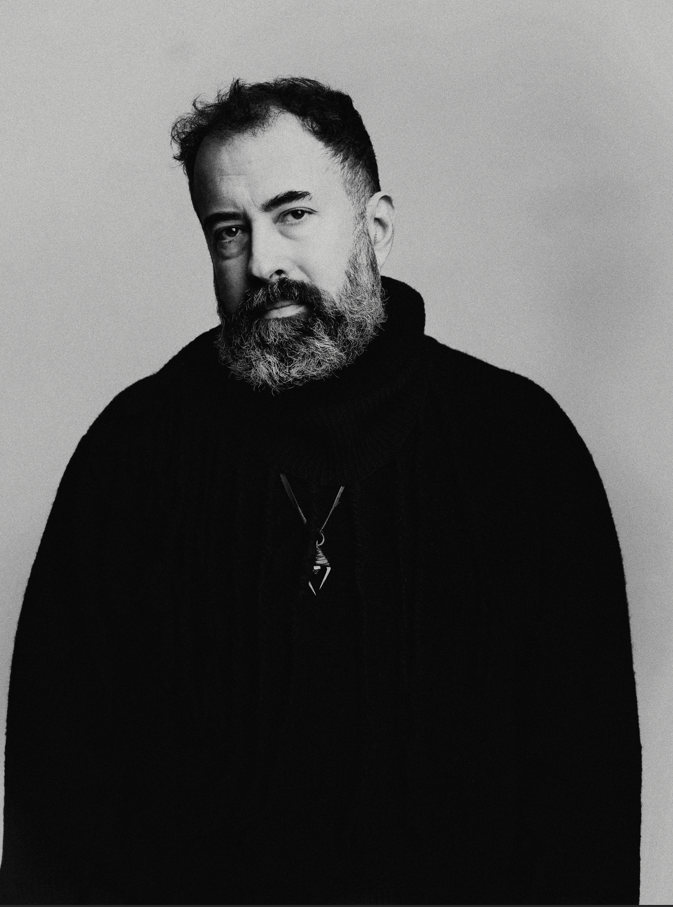 You moved to Amsterdam permanently 16 years ago – how has Brexit affected your life?
You moved to Amsterdam permanently 16 years ago – how has Brexit affected your life?
It's really upset me. I was allowed to vote in the Brexit referendum, but Horsham District Council would not send me a postal vote. The Dutch, right, they can vote wherever they are. If they live in London, they go to the Dutch consulate, and drop their voting papers there. That's democracy, right? I felt that I'd been cut out of democracy in the UK, and that really, really hurt. I love being in this country.
So you couldn’t vote?
One of the beautiful things that happened – I was flying over to Manchester and read a news article that said they've repealed that horrible law which says you can't vote if you've been away from Britain for longer than 10-15 years. Apparently that's gone now. So I'm signed up again.
If anyone listens to you in interviews or on social media, this term “business techno” repeatedly appears. What is that and why are you so derogatory about it?
There was this music movement called EDM, which is electronic dance music as broad as can be: you have a daddy that owns a hotel chain, then you decide to become a DJ; you play basketball, then you decide to become a DJ, you have a trumpet shoved up your arse, then you decide to become a DJ. Like a West Street casual from Brighton, dancing on stage, do stupid things and become a DJ. Everyone thought, “Oh let them get on with it. It’s fine. Let the circus be over there and let the real talent be over here.” But business techno took from EDM and basically put business first, which is completely opposite to what techno was.
So you’re suggesting techno originally had a socio-political aspect?
Always a great political movement. From being an outsider's music, to being very, very aware of social injustice. Then, all of a sudden, you have these people that would come from Sweden, the Netherlands, other places, just really wanting to be successful without challenging or being political. Things like, “Oh yes, we're playing in Saudi Arabia, we’re going to bring change,” and not actually being aware or caring. A few weeks later, there are even more public executions [in Saudi Arabia], and no change actually happened at all. There’s sports washing, green washing, holiday washing, now dance music washing, just going there for money.
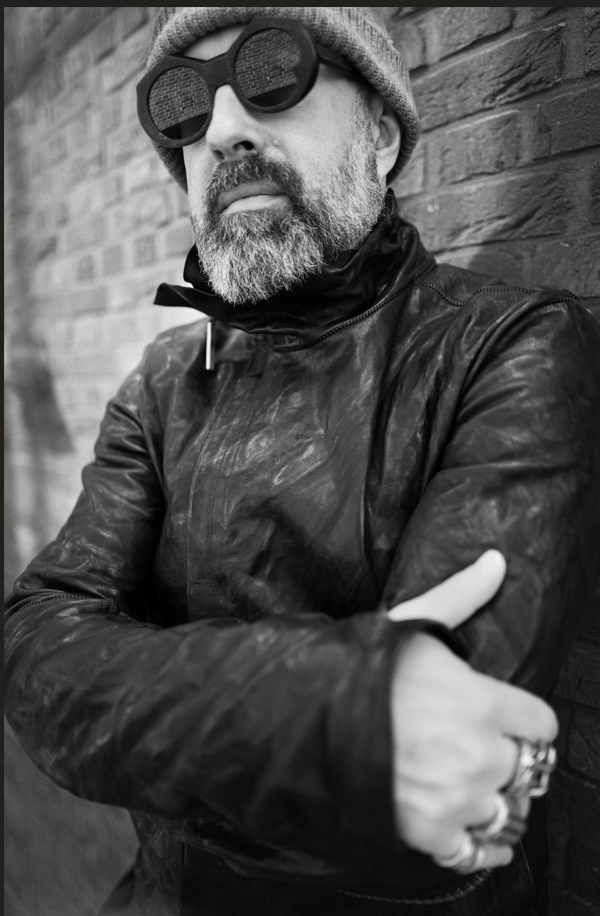 So, from your perspective, a travesty of what it's about?
So, from your perspective, a travesty of what it's about?
You don’t need much talent to be on stage anymore. They turn up with a pre-recorded set. And you know, for fun, you can go up to them and say, “Oh, can you play one more track? I'm still getting ready...” “Oh no, my set finishes exactly in one minute.” It's fun to wind these people up. “Well, I'm sorry, you're gonna have to play one more track.” Their brain does not compute and they look like they’re going to explode.
How do they get into that position in the first place?
The whole thing is run around social media campaigns. Corona Virus made social media platforms the thing. People start on there then end up on a big stage. There's hardly any press anymore, hardly any music journalists given free rein to be critical.
Does “business techno” actually have a sound? Or are you just talking about a cultural aesthetic?
It’s a safe sound. Doesn't challenge anything. We spoke earlier about mental health. And, you know, some of these people are out [working] all the time, their managers getting like 20-30% in the background, pushing them, getting good fees for them. And you just wonder if they're going to have mental crashes? Because no one seems to learn from Avicii, or they don't care.
Playing Devil’s advocate, then; when we listen to punk, or to some elements of grime, the politics is explicit, the songs are statements. Techno punches, for sure, but how is it political?
Well, it started off very, very political, because, as with punk, there was a DIY attitude. No support so we have to do this ourselves. It’s multicultural. Back then, no one really was interested at all. Like Pete Tong would say, “Well, we can't have techno on Radio One, there's no place for it.” Stuff like that. So it was very do-it-yourself. We learnt how to make it because there wasn't the Internet. We were all doing it in different ways, starting a scene, willing to believe, being an outsider, trying something unique. Of course there are no lyrics within the majority of dance music. And I remember getting really upset with Josh Homme doing an interview about 15 years ago. [He was saying] the only lyrics in techno are, like, “Techno, techno, techno” and “Take me to the limit.” Oh, you wanker, you missed the point.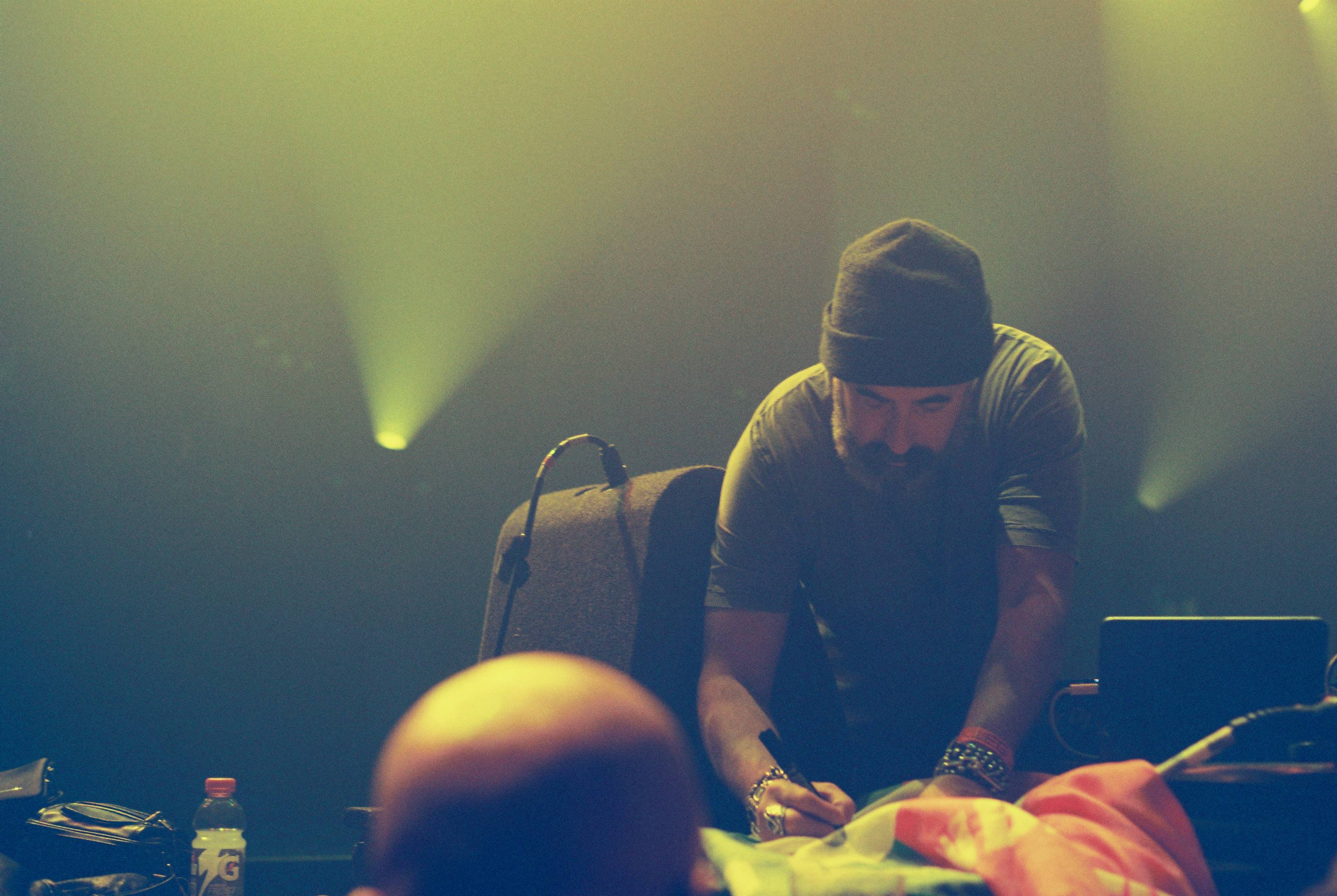
Now techno is as apolitical as a music can ever be. Cultural colonialists that own all the festivals present no place for local cultures to thrive anymore. It's called circus techno, really – sorry to confuse. Because they have an elephant, they have a seal, they have a clown, they have a lion, normally toothless, they have a tiger who's really sad and lonely, they have maybe a few monkeys. They move them around in different orders for different headlines in different cities. But it’s the same talent. I use the term “talent” very generously. I'm sure that the monopolies and mergers commission could have an absolute field day in this environment, if they actually gave a shit.
A lighter question; you obviously listen to loads of music outside techno – what would your recommendations currently be?
I would actually say, please listen to my Saga Series radio show, which is on RTÉ 2FM and sagaseries.net, and on Apple podcasts, Google podcasts and also on TuneIn. I'm playing lots of new music again. There's a great punk scene down in Australia, in Melbourne, and I'm going to mention the Springtime album by Gareth Liddiard, also Trentemøller. There's a lot of great new alternative music coming from Denmark, Sweden, Italy, Germany, everywhere. I do the complete opposite of the youngsters where, if it’s got less than 100,000 likes, it must be shite. My thing is to go down rabbit holes and if it comes up with like, two Shazams, yes, I’ve struck gold.
Below: watch and listen to Dave Clarke's one-and-a-half our DJ set at the Milkweg in Amsterdam at ADE 2023

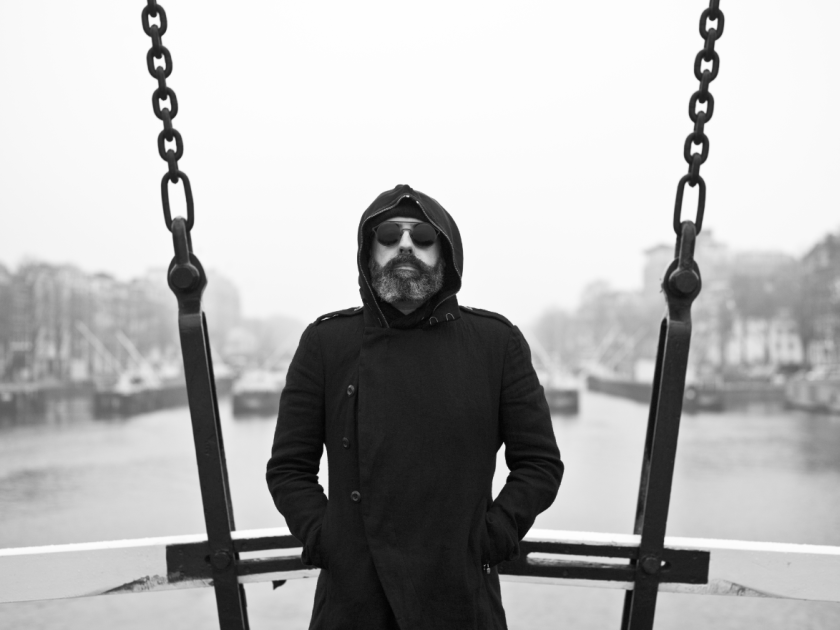













Add comment